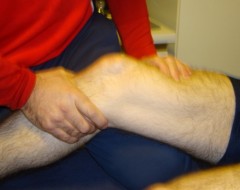Superb course - well structured, easy to follow lectures. Thank you.
- Katie Sweet
‘Very good engaging speaker, easy to listen to approachable. Representative models were effective and simple. I feel like I understand the basic principles of the techniques practiced and it has given me confidence to have a go in practice.’
- Josie Parker
Excellent practical facilities and ability to practice and apply techniques learnt. Really friendly and approachable tutors. I love coming here for CPD.
- Emma Corfield
‘Just for the record - I think this is a wonderful service.’
CPD Solutions have been fantastic.A huge help to me, and boost to my surgical skills and confidence.
I’d highly recommend STS Refresher (and CPD Solutions in general) to any vet looking for relevant, comprehensive and interesting CPD.
- Maggie Sellers
Brilliant course. Tutor very enthusiastic, small class size which is optimal to get a lot of time in lab, and one to one with tutor. Venue perfect.
- Ralf Konen
‘Thought Jonathan Dyce's webinar was excellent, it’s the best one I've attended yet. It was very focused and very relevant to day to day orthopaedics.’
‘Easily the best CPD I've had for years!!! Excellent tutor, good facilities.’
- Tony Syrris
‘Such a well put together through presentation that I have already been able to transfer across into using daily at work :) Excellent use of still images and videos to show what we should be aiming to see or how to find.’
‘For the first time in my life I feel I could make a reasonable attempt at putting a plate on! Orthopaedics seems less frightening – the wetlabs were invaluable.’
'Can complete CPD at work -no need for long days travelling by train, or giving up evenings.'
'I am amazed at how much we have achieved in just 2 days. I'm looking forward to level 2 now. I will be a lot more confident at using ultrasound in future.'
- Emma Mapletoft
'Really interesting and clinically relevant course. Good to use practical cases rather than just bland repetition of what is in the notes. Jane very approachable and interesting to listen to.'
- Geraldine Young
Found this to be the best method of learning I have tried.
- Stephen Arundell
Love the modern approach to the PgCert on reflection rather than memorisation and article writing.
- Rhiannon Jones
‘Thoroughly enjoyed it. Gained confidence in common approach and decision making. Good balance of theory and practical.’
- Philip Perring
‘My confidence to deal with those weekend chest films on my own is hugely enhanced. Good notes and good film reading practice.’
'Very enjoyable and informative. Lots of time using the Ultrasound machine. (Which was great) Feel a lot more confident about scanning in practice now.'
- Louise Topham
Completing the PgCert has given me both practical skills and confidence to forward my interest in veterinary dentistry and allowed me to provide the best patient care possible. The tutors are excellent and very approachable, and the content is very clinically relevant. I am happy I made the decision to enrol.
- Charlotte Nicholson
The knowledge I have reinforced alongside the surgical techniques I have learned will allow me to manage eye cases better, and to basically save eyes that would otherwise have been enucleation because referral is impractical for many owners.
- Stuart Lloyd
I found the CPD very interesting and helpful. Having the opportunity to do scans and improve. The speakers explained everything and gave many useful tips. Time was more than enough for everyone to practice.
- Antonini Stavroulaki
'Tutor was excellent. One of the most useful and informative courses I've been on. Every vet in first opinion practice would benefit.'
- Lucy Rivett
Absolutely perfect course! Well presented with all the relevant information. Speaker is a true professional with vast knowledge.Fantastic CPD
- Anon
‘I have finally made time to watch the 3rd neurology webinar and would like to say thank you very much indeed for organising the course which was/is very interesting and useful. One thing I really like about these webinars is being able to watch them as many times as you like, within a certain period. It's also really good not having to drive anywhere.’
- Stella Hitchins
‘Just like to say it was a very informative series and I am now more confident and skilled when performing abdominal ultrasounds. Thank you.’
‘I would just like to say the webinar was excellent. It answered a lot of questions that we have been debating at our surgery, especially the subject of in-dwelling catheters. It was practical and relevant and thoroughly enjoyable. I look forward to more webinars!’
- Dave Cumber
An excellent practical course with patient and skilled tutors. Covers all the major emergency procedures that you worry about on call. I am much more confident with the surgeries and have picked up lots of useful tips.
- Laura Powell
Great balance of teaching through both practical Endoscopy but also the techniques, theory, what’s normal and what’s not. Taken me to the level I will be happy to go back to the surgery and get straight into working up cases and get stuck in!
- Simon Lyddon
‘Straightforward logical approach with lots of practical film reading rather than too much focus on theory.’
‘Thanks very much for the tortoise webinar - really helpful! Will it be possible to download the notes from the presentation? - it would be so useful!’
- Sarah Baird
Today has been fascinating and engaging and I will leave with renewed enthusiasm. I can’t wait to get back to practice and implement all that I have learned. There is the perfect mix of lecture vs practical to help maintain focus.
- Emma Fowler
'Really enjoyed it, hugely improved my confidence in Ortho cases and I am hoping to put my new skills into practice soon.'
- Emma Lindop
'First thyroidectomy very successful thanks to the video and tips.'
‘Been meaning to contact you to say how useful the webinar was. I'm not very technical but found it easy to do & the information & the way it was presented was great.'
- Louise Mills
‘This was a brilliant webinar. Enjoyed it very much and learned a lot too. Thank you for doing this. Dr. Eatwell really has the right feel for those precious creatures.’
- Irina Weese
‘The videos were informative - it was great watching at home. I liked the quiz afterwards.’
‘Wow! Thank you so much for a wonderful lecture. That was the best CPD I've done in years. You explained everything really clearly and succinctly. I really enjoyed it. Thank you, Esther.’
- Sarah Shephard
‘Fabulous webinar - thank you very much, really useful and enjoyable.’
Brilliant and very applicable to general practice.
- Georgie Mason
Very interesting course, will have a positive impact on my approach to managing cases
- Lyndsey Pass
Lots of useful information ,presented in a clear and easy to understand way. Various topics, lots of in depth advice that are easy to fit into daily practice
- Nora Janossy
Fantastic experience and fitted in well with my work and family commitments. Would recommend to others.
- Gary Kelly
'Thoroughly enjoyable, well taught and considered. Has put me at ease with some new techniques and ideas discussion made me feel that I would know what I would do in similar situations.'
- Emma Holmes
'Have used information from your PSS topic to help with a kitten with a shunt and neurological / fitting info for several epileptic / neurological patients. The best bit is being able to return to it when you like.' 'Found the CPD on osteosarcsoma particularly useful when discussing with owners about survival rates'
I chose CPD Solutions because the speakers are very knowledgeable and have a large amount of experience to use when answering questions.
- Fran Moreland
My knowledge, confidence and ability have significantly improved. The tutors are friendly, approachable and very happy to share their knowledge and practical expertise. I would thoroughly recommend this course.
- Eleanor Cowton
'The course content far exceeded my expectations. Refreshing to cover a subject in such depth & detail. Also was by far the best lecturer I have come across & thoroughly enjoyed my dat. Would recommend this course to every nurse with a interest in dentistry.'
- Claire Francis
‘Mark very clear and explains things in ways that are not only easy to understand but enable me to work out problems from the underlying principles.’
I finally feel confident to be extracting teeth safely and with the least trauma possible. Dentistry is less stressful.
- Tim Pearson
‘I found the Feline Urethral Obstruction webinar very informative, practical and useful. I will probably change the way I manage these cases from now on and pass the new information on to my colleagues.’
- Sarah Topcu
Extremely useful to build up practical confidence in emergency situations, excellent and engaging. Now I can face these procedures without panicking. High quality of teaching.
- Giulia Toth
Really helpful, thorough and up to date information - it's had a direct positive impact on my clinical practice - thanks!
- Leanne Thompson
'Fantastic course, really helpful image filled lectures to cement the images in your brain. Great hands on practical experience. Feel ready to take on my next Endoscopy.'
- Helen Dearing
'Very enjoyable. Excellent opportunity to practice practical skills. Thorough, explanation and keen tutors.'
- Georgina Kendall
‘The whole course was so well presented – well organised and clinically easily understandable. The lecturer deserves an A*!’
This course provided a great combination of theory and practical techniques. The information was very well presented and one to one feedback given during the wet lab. I now feel confident about getting on with exploratory laparotomies and beyond!
- Siân Richards
The online course gave me the flexibility and extra time for me to go back to the video to review its content. The flexibility can go back and replay the video during a period of time ( e.g. 10mths). As a working clinician with young kid is difficult to find quiet and regular time to watch the video. This is a excellent review. Give more more in depth knowledge and practical approach to cardiology
- Timothy Ka Fung CHOI
‘Thanks for all the really well organised and good quality webinars.’
'Excellent lectures, speakers very clear and informative, very useful practical sessions and helpful tutors. Very good to learn alongside other beginners.'
- Emily Hamlyn
The course is very practical. I can use a lot of the techniques back home with confidence. The tutors are very experienced and eager to share their experience. The facilities at the CPD training centre are very good.
- Tanya Bruin
The content of the webinars - easy to understand, lots of nuggets of useful information. Aimed perfectly for the emergency practitioner. The study notes are a great takeaway. it was great to have one on one contact and be able to ask questions directly to the lecturer - who was brilliant!
- Eve Tarleton
Excellent course content, level was just right for me. Really good balance of lectures and practical sessions too. The speaker was excellent, friendly and approachable throughout the day. Definitely will be recommending CPD Solutions to my colleagues.
- Anthony Dennison
'This course was exactly what I wanted it to be. It simplified some of the topics, meaning I'm more prepared with how to explain common cancers and treatments to owners.'
- Sally Collins
'Superb - I feel more confident now caring for tortoises and communicating with keepers to ensure correct husbandry. Learning techniques such as O-tubing extremely valuable.'
- Lynne Faulconbridge
‘The ongoing access is the gem of your course!’
'Speaker absolutely excellent. Lots of good, practical tips. I learnt about how best we can use our practices current endoscopy and what to purchase to improve it.'
- John Gould
‘I have just attended the webinar on feline urethral obstruction: it has been super! Martha has been really useful and clear. ‘
- Paola Fognani
Great experience at CPD Solutions learning about Local Anaesthetic Techniques. Would definitely recommend! Came with an idea of what I wanted to learn but came away with so much more!
- Paula Bagshaw-Wright
'The practical sessions were excellent. I feel confident enough to try these in practice. Definitely feel my objectives have been achieved. Lecture sessions were great. Excellent tutor.'
- Helen Stephenson
Excellent delivery of the course. Great balance of the theory and the practical sessions. It makes heart scan so much easier! Very informative, interactive supported with the clinical cases. Strongly recommended.
- Iwona Szmyd
‘I have more awareness of patient monitoring, value of cardiac monitors, importance of understanding what the monitor is recording and showing.’
'Access from anywhere anytime, and from a very reliable service.'
'I now feel totally confident to go ahead with endoscopic techniques and get useful information to help improve our service to our clients.'
- Jane Barwick-Nesbit
Course Very Well Structured And The Tutor Was Of Very High Quality. I Would (and I Will) Recommend This Course To My Colleagues.
- Fabrizio Canelli
Reflecting upon my own cases through literature searching for essays during this course and learning to appraise existing evidence bases for treatment protocols we use day-to-day in our clinic has been invaluable, providing me with skills that I will continue to use for the rest of my career.
- Lynne Faulconbridge
‘I enjoyed your webinar about post hibernation of tortoises. It was easy to follow and very informative, not having extensive knowledge of this. It left me feeling a lot more confident about dealing with such a case. So thank you.’
- Tim Dannatt
Excellent course. I learned a loads of handy tips. It is extremely useful, very practical and I will highly recommend this to anyone who wants to get a good start with Orthopaedics.
- Adelina Proteasa
Learning to reflect critically on my behaviour and performance as a practitioner has been the best thing that has happened in my career.
- Leon Ringelmann
My clinical practice has dramatically improved during the course of this programme. The attendance courses and wet labs were a great opportunity to get hands on experience.
- Marialena Avratoglou
'I performed a superficial caudal epigastric skin flap on a dog who had tried to jump a barbed wire fence causing a massive skin deficit in her groin. I would not have been confident to do this without the video on Keysteps online which shows step by step how to do this technique and explains complications that can occur. I don't think I would have had a successful outcome without the knowledge that Keysteps gave me.'
‘Just a note to say thank you for enabling me to access the webinar. I thought Kevin’s talk was both interesting and informative and found the study regarding changing osmolality through the duration of the hibernation period particularly fascinating.’
- Sue Beck
'Livia was a brilliant tutor - excellent course content and so approachable and helpful. I have leart so much in these 2 days - all of which has been seful and relevant to general practice.'
- Miranda Sheppard
Excellent. It has allowed me to approach problems in an improved way, and improved my knowledge immensely and given me new confidence.
- Richard Todd
'Being able to do the course in your own time at your own speed was really useful.'
'This was an excellent course, I now know what I should be doing when scanning hearts so will be scanning many more.'
- Sarah-Jane Eastman
This is the best practical session I have ever attended. Lots of video clips detailing the surgical procedures. Practical sessions are excellent, one to one coaching is always available. I will definitely recommend this course.
- Soo Ming Teoh
Brilliant practical sessions with lively in-depth discussions. Good time frame over which to learn and feel improvement!
- Mary Raho
Brilliant interactive CPD course that fully met my expectations. Excellent tutors, helpful and happy to answer all my questions, give advices and practical tips. Would recommend it to anyone who needs to refresh their general practice skills, as I really enjoyed it.
- Joanna Maciejewska
‘Really excellent CPD. I was effectively challenged and encouraged to perform new procedures in a great small group environment and I am now much more confident to take them back to my practice.’
- Philippa Morton
'Excellent course, pasionate speaker and extremely useful practical sessions. In only 2 days feel enormously more confident.'
- Topasz Koch
‘Thanks Martha for the webinar yesterday - my first! It was a good use of time which in my life is very important.
- ‘Simon DeVile
‘Thank you for offering such a great way to achieve further knowledge.’
Amazing. Really good for vet surgeons that are not comfortable around U/S machines. The course offers a good introduction to U/S basics. Practical part quite long and allows us to practise and feel more confident.
- Nadia Cufos
‘Course excellent and best instructional U/S course I've attended.’
Really informative course with in depth detail and practical advice. Video and photographic information especially helpful
- Nicola Birch
This has been such a great experience. I have come away learning more than I thought I would and now feel much happier with not only performing an ultrasound but also changing the settings to achieve a better image.
- Emma Bailey
‘I greatly enjoyed the webinar and found lots of useful information.’
‘May I take this opportunity to express how happy I am with my membership of Webinar Club thus far. I have been impressed by the efficiency and reliability of the webinar service, which compares very favourably to your competitors.’
‘I thought the webinar on stifle radiology was excellent. I want to run and reassess all my old radiographs now!’
I found the course excellent. The practical sessions were also of great value, with good equipment and plenty of time to practise techniques. Overall, I would highly recommend this course to anyone thinking of embarking on Spinal Surgery.
- Cathal Rafferty
‘I enjoyed the webinar very much, found it very informative and interesting. Thank you very much! ‘
- Kerstin Vockert
‘Re capping my knowledge was most useful and I found the multiple choice questions helpful to check I had understood what was discussed.’
‘Very informative, clear and easy to follow presentation. Extremely accessible way of clocking up those CPD hours and keeping up to date and refreshing knowledge.’
'A dog with a descemetocele would have lost its eye if I hadn't gained the confidence to perform a pedicle graft through a Keysteps Online programme.'
‘I would just like to say how useful the webinar on the Diabetic Ketoacidosis was - the hour just flew by - I had to watch it yesterday as I was unable to watch it live - very good! Thanks.’
'Excellent - Have gained much more confidence from this course that I can use tomorrow in practice.'
- Tracey Whitehouse
Tremendous level of content, high standard, excellent presenter, very personable despite it being a recorded session.
- Julius Neuman
'I find having whole days away doing CPD very difficult to manage with young children. Now I do CPD when it suits me in smaller units.'
'Having already had a very high opinion of CPD Solutions Orthopaedic courses, this course met and exceeded my already high expectations. Application of techniques learnt today are applicable to a very wide range of commonly encountered fracture scenarios and are likely to be put to near daily use in our busy centre.'
- David Strong
'Superb! I would not hesitate to recommend this course to colleagues.'
- Hugh Morrey
‘So far has been the most useful course on abdominal scans I have done.’
‘The best course I've seen.’ ‘Have already recommended it!’
'Section on status epilecticus-had a dog that would not stop seizuring until I used the protocol given. Also gave me the information I needed to give a clear account to the owners.'
‘Just wanted to say I find the webinars a very good way of topping up my CPD, although I can rarely listen to them live. I particularly liked the cat vaccination webinar I have just listened to, very informative and practical.’
- Robert Lee
'Excellent speaker. Clear concise and relevant information. Fascinating insights. I found the whole day most enjoyable.'
- Andrew Chivers
Brilliantly organised, tutors of the highest quality and highly practical teaching! Very practical, well taught, well worth it!
- Rory Cowlam
‘I would like to pass on my compliments on the online CE program and the superb quality of the ultrasound miniseries. This is my first experience with your program and I am very impressed with the quality.’
- Kelly Hall
‘Thank you for offering such a great way to achieve further knowledge.’
'It allows me to perform a significant amount of my yearly CPD obligation without having to spend time away from my young family.'






























